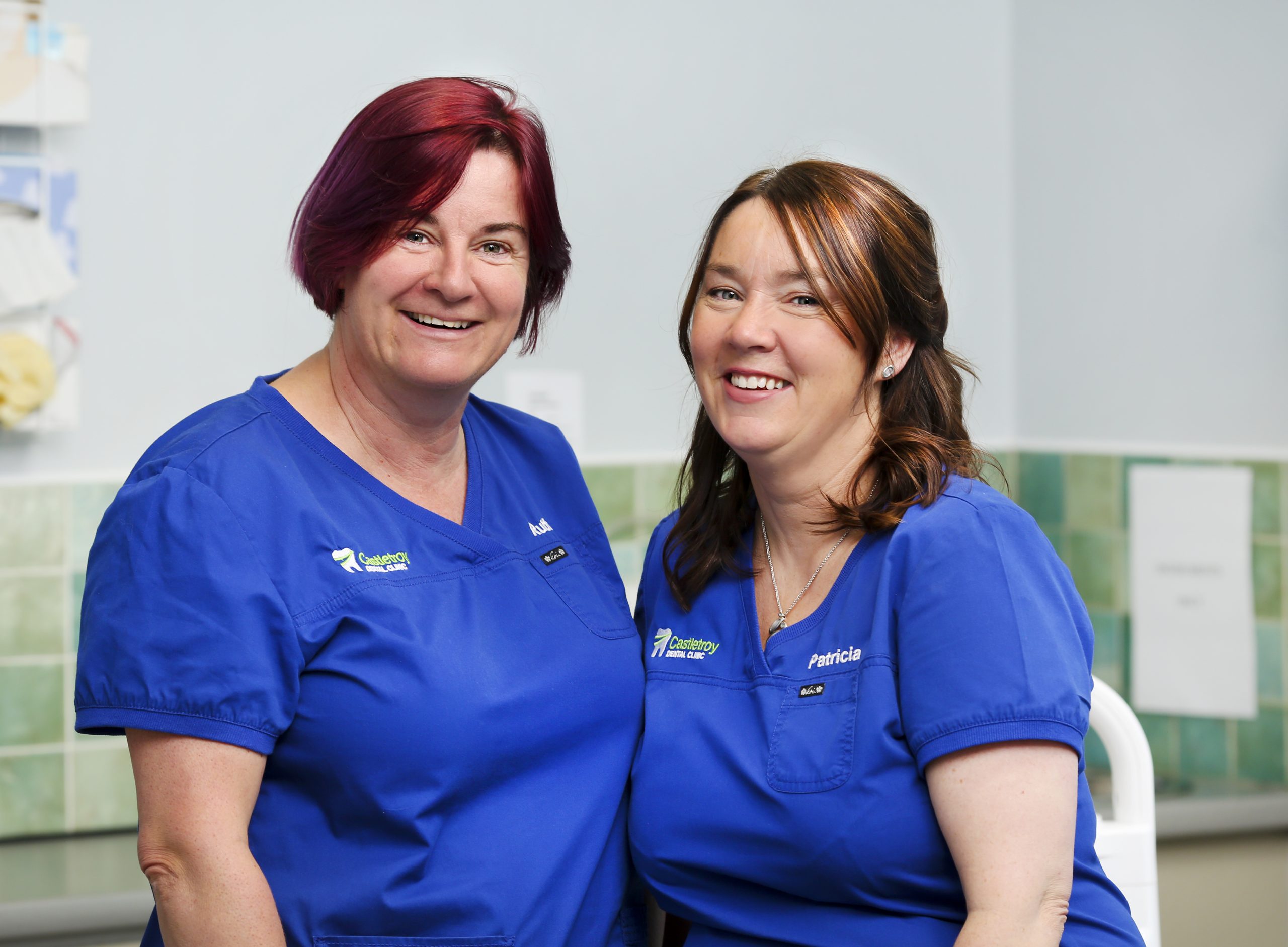Frequently Asked Questions
FAQs
Where is your clinic?
Castletroy Dental Clinic is situated right on the Dublin road, coming from town go straight through Groody roundabout(2nd exit) its the first building on the left hand side.
Post Code : V94 PA66
When are you open?
Monday 8.00am — 6:30pm
Tuesday 9.00am — 6:30pm
Wednesday 9.00am — 7:30pm
Thursday 8.00am — 7.30pm
Friday 8.00am — 4.00pm
Saturday 8.00am — 4.00pm
We are open through lunch every day Monday – Saturday.
Is there parking at the clinic?
Yes, there is ample parking in our car park.
Do you see children?
Of course! and if Mum & Dad are relaxed about the dental visit, the kids will be more relaxed too!
Do you take on new patients?
Yes, we are delight to welcome new patients to our clinic. We provide treatment to private and PRSI patients.
What happens at my first appointment?
Your details will be taken at reception. Your dentist will carry out a full examination and may take some digital x-rays.
Then the dentist will discuss your treatment needs and options and answer any questions. You will receive a printed copy of your proposed treatment plan indicating the cost and number of visits involved.
Why do my gums bleed?
There are many reasons gums bleed. Here are some examples of why this may be happening to you :-
- Poor oral hygiene
- Lack of or poor technique with brushing and flossing.
- Lack of regular professional cleaning by the dentist or the dental Hygienist (ever 3-6 months)
- Systemic disease such as diabetes or cancer.
- Some medications can cause bleeding e.g. high blood pressure medication.
- Poorly fitting fillings or crowns or broken teeth that trap food & bacteria.
- Overcrowded or overlapping teeth.
- Active periodontal disease.
So there are many reasons that gums may bleed. The main advice is to see your dentist, get a full examination with x-rays to diagnose the problem and then discuss a treatment plan.
My Dentist told me my tooth needs a crown. What is a crown?
A crown is required if a tooth is very heavily filled or badly broken down. A crown fits over the prepared tooth and gives it strength. A crown will look like the original tooth. A crown can be made from metal alloy, ceramic or a combination of both.
My dentist told me my tooth needs root canal treatment. What is this?
Root canal treatment is required if the nerve of the tooth has died or if a tooth is very painful . Root canal treatment allows over a period of time the tooth to be saved rather than extracted.
The dentist cleans the centre of the tooth with small precision instruments, then shapes & fills the middle of the tooth with a rubbery material to seal it. Root canal treatment is usually painless and can provide a lot of pain relief if the tooth has been painful.
Is tooth whitening safe?
Tooth whitening is safe when carried out by a dentist. Hydrogen peroxide and carbamide peroxide need to be handled with care and this should only be done by a qualified dentist.
What treatment is available under the PRSI scheme?
All eligible PRSI patients are entitled to one free dental examination and one subsidised scale and polish for €15 each year.
I may be pregnant. Does my dentist need to know this?
Always inform your dentist if you think you may be pregnant. Being pregnant does not prevent you from having dental treatment but most dentists will defer any treatment that is not absolutely necessary until after the baby is born.
Dental x-rays are best avoided, but experts agree that, in an emergency where necessary, x-rays may be taken.
Can I claim tax relief on my dental treatment?
Certain dental procedures such as crowns, root treatments and periodontal treatment, do qualify for tax relief. At the end of treatment we will complete a Med 2 form for you so you can claim tax relief.
I have broken a piece of my tooth or my filling - What should I do?
Unfortunately sometimes teeth or fillings can break or chip.
There may be many reasons for this: a filling may be very large and the tooth weak and prone to fracture. Or biting down on something hard at an awkward angle.
The tooth may have no symptoms or can be sensitive to hot or cold or sore on chewing. The break can feel very big to the tongue.
It is important to make an appointment with your dentist as soon as possible. But here are some temporary measures which can help in the short-term:
- if the tooth is very sensitive, avoid extremely hot or cold food or drinks.
- rubbing a little fluoride toothpaste to the sensitive area can help.
- a temporary filling kit for the pharmacy may help cover the exposed area.
- over the counter painkillers if necessary will help alleviate any pain.


